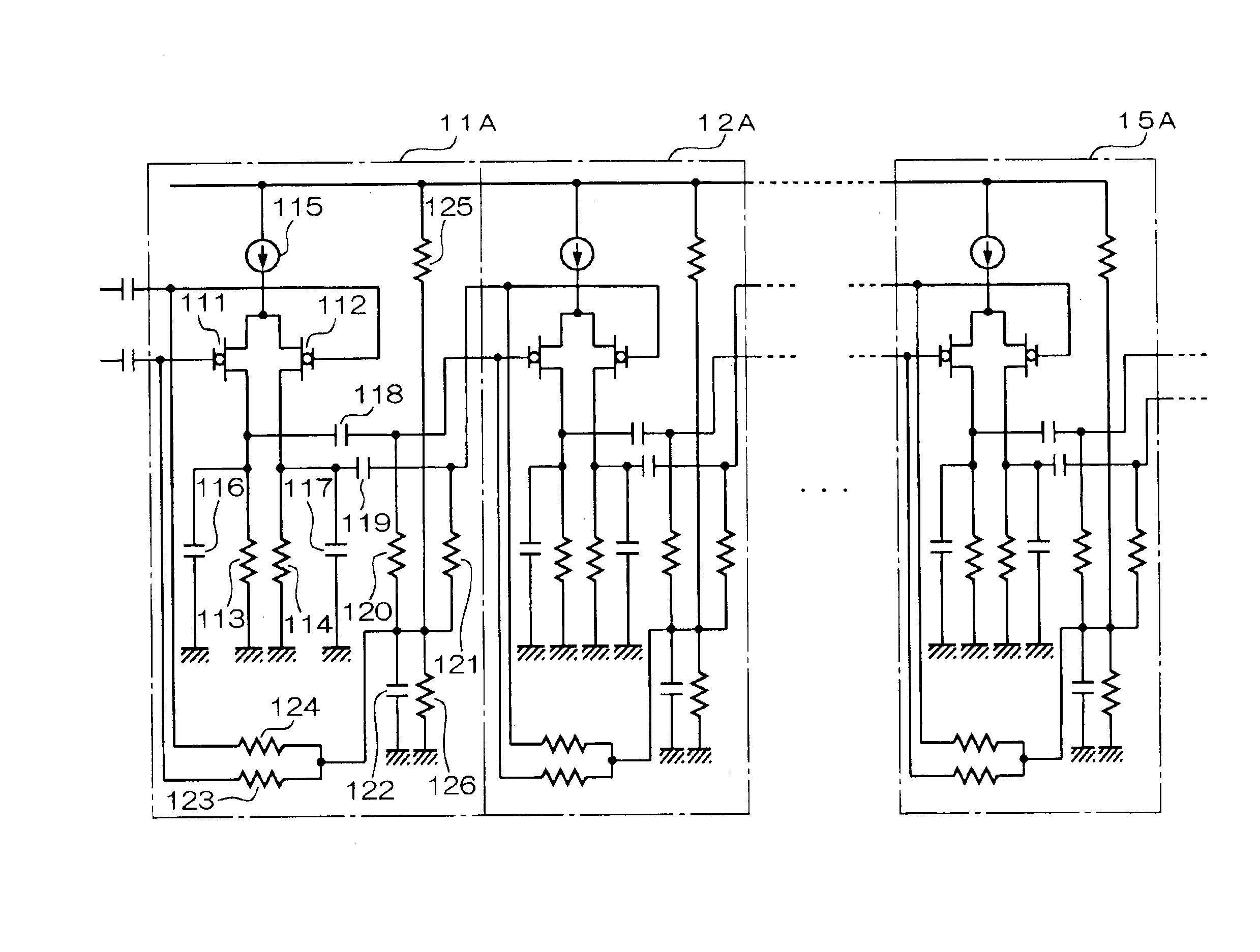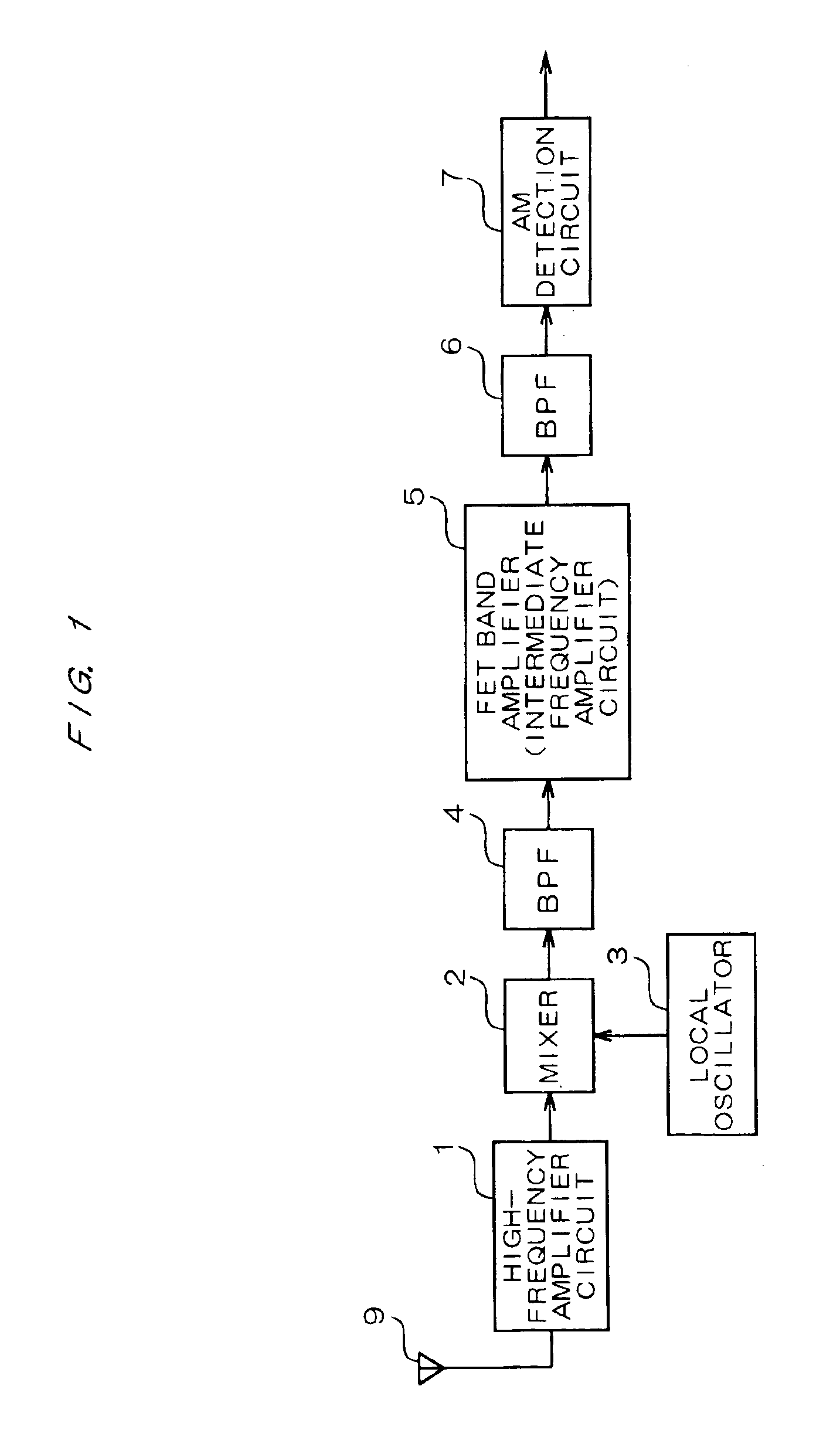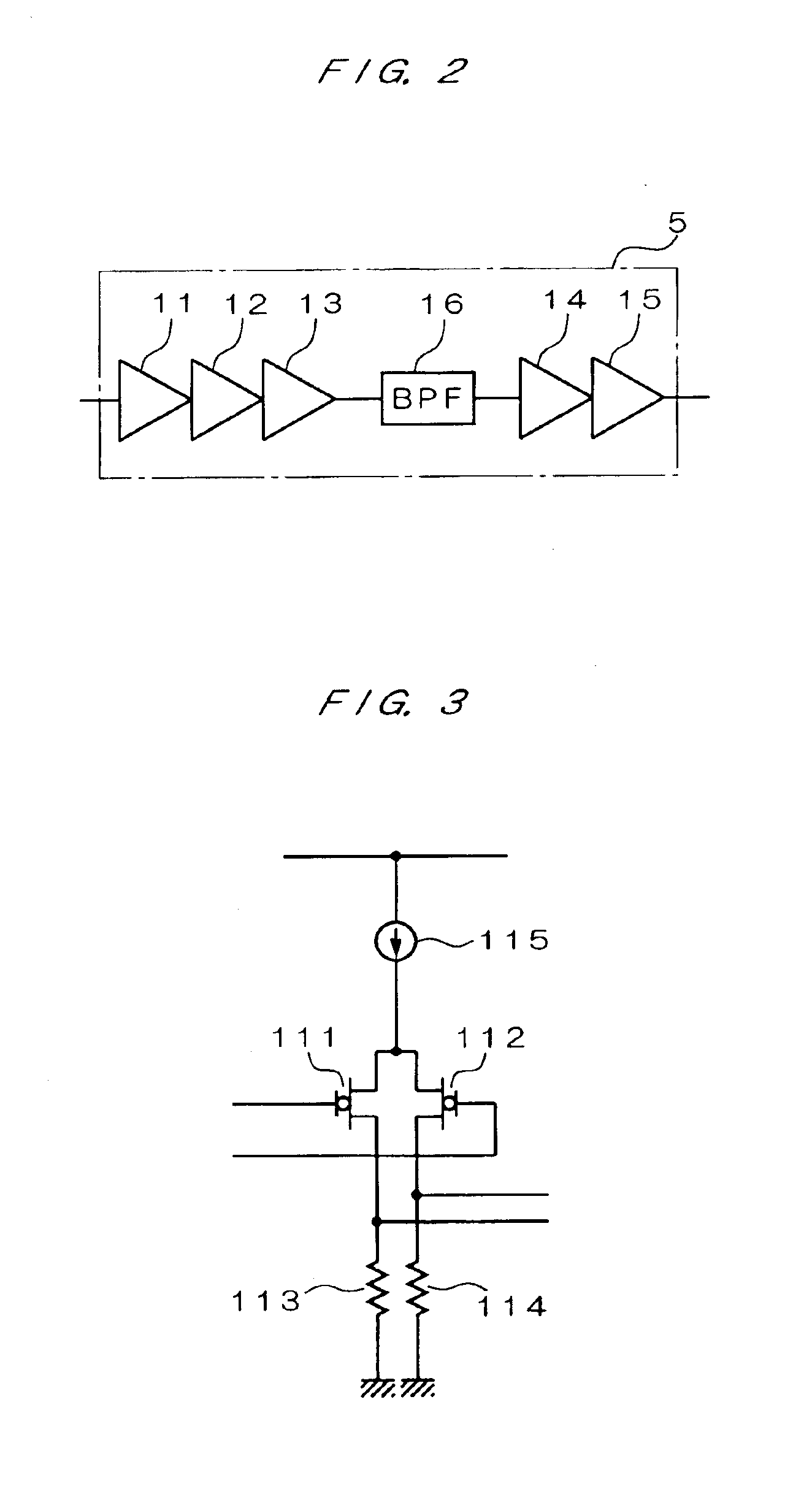FET band amplifier
a band amplifier and fet technology, applied in the direction of amplifiers with semiconductor devices/discharge tubes, differential amplifiers, amplifiers with semiconductor devices only, etc., can solve the problem of inability to obtain a gain realizable in design, and achieve the effect of reducing the 1/f noise generated in the fet, and less to reducing the overall low-frequency nois
- Summary
- Abstract
- Description
- Claims
- Application Information
AI Technical Summary
Benefits of technology
Problems solved by technology
Method used
Image
Examples
first embodiment
[First Embodiment]
[0036]FIG. 1 is a diagram showing a general configuration of an AM receiver including the FET band amplifier according to a first embodiment. As shown in FIG. 1, the AM receiver has a high-frequency amplifier circuit 1, a mixer 2, a local oscillator 3, BPF (Band-pass Filter) 4 and BPF 6, an FET band amplifier 5 and an AM detection circuit 7. An AM wave received by an antenna 9 is amplified by a high-frequency amplifier circuit 1 and then a local oscillation signal outputted from a local oscillator 3 is mixed so as to perform a frequency conversion from a high-frequency signal to an intermediate frequency signal. For instance, if a frequency of a signal outputted from the high-frequency amplifier circuit 1 is f1 and the frequency of the local oscillation signal outputted from the local oscillator 3 is f2, a signal having the frequency of f1-f2 is outputted from a mixer 2.
[0037]BPFs 4 and 6 are provided in foregoing and subsequent stages of an FET band amplifier 5 fu...
second embodiment
[Second Embodiment]
[0054]One BPF is inserted after the third-stage amplifier 13 to remove noise components in the first embodiment described above, but noise components may be removed in the amplifier of each stage.
[0055]FIG. 4 is a circuit diagram showing the configuration of the FET band amplifier according to a second embodiment. The FET band amplifier according to this embodiment shown in FIG. 4 is constituted by cascading the amplifiers in five stages 11A, 12A, . . . 15A. As the configurations of these amplifiers are basically the same, the detailed configuration and operation will be described hereafter by paying attention to the first-stage amplifier 11A.
[0056]The amplifier 11A is comprised of two p-channel MOS FETs 111, 112, eight resistors 113, 114, 120, 121, 123, 124, 125 and 126, a constant current circuit 115 and five capacitors 116 to 119 and 122. Of these, the FETs 111, 112, the resistors 113, 114 and the constant current circuit 115 are in common with the configuratio...
third embodiment
[Third Embodiment]
[0070]FIG. 6 is a circuit diagram showing the configuration of the FET band amplifier according to a third embodiment. The FET band amplifier according to this embodiment shown in FIG. 6 includes the amplifiers cascaded in five stages 11C, 12C, . . . 15C and an additional circuit for taking out the signal outputted from the final-stage amplifier 15C and feeding it back to the first-stage amplifier 11C.
[0071]As the configuration of each of the amplifiers 11C to 15C is the same, a description will be given hereafter by paying attention to the first-stage amplifier 11C.
[0072]The amplifier 11C is comprised of the FETs 111a, 112a, resistors 113, 114 and constant current circuit 115. The amplifier 11C has the configuration which is basically the same as the amplifier 11 shown in FIG. 3. However, the p-channel MOS FETs 111a, 112a shown in FIG. 5 are used instead of the FETs 111, 112. To be more specific, the FETs 111a, 112a have the gate length L and the gate width W set ...
PUM
 Login to View More
Login to View More Abstract
Description
Claims
Application Information
 Login to View More
Login to View More - R&D
- Intellectual Property
- Life Sciences
- Materials
- Tech Scout
- Unparalleled Data Quality
- Higher Quality Content
- 60% Fewer Hallucinations
Browse by: Latest US Patents, China's latest patents, Technical Efficacy Thesaurus, Application Domain, Technology Topic, Popular Technical Reports.
© 2025 PatSnap. All rights reserved.Legal|Privacy policy|Modern Slavery Act Transparency Statement|Sitemap|About US| Contact US: help@patsnap.com



